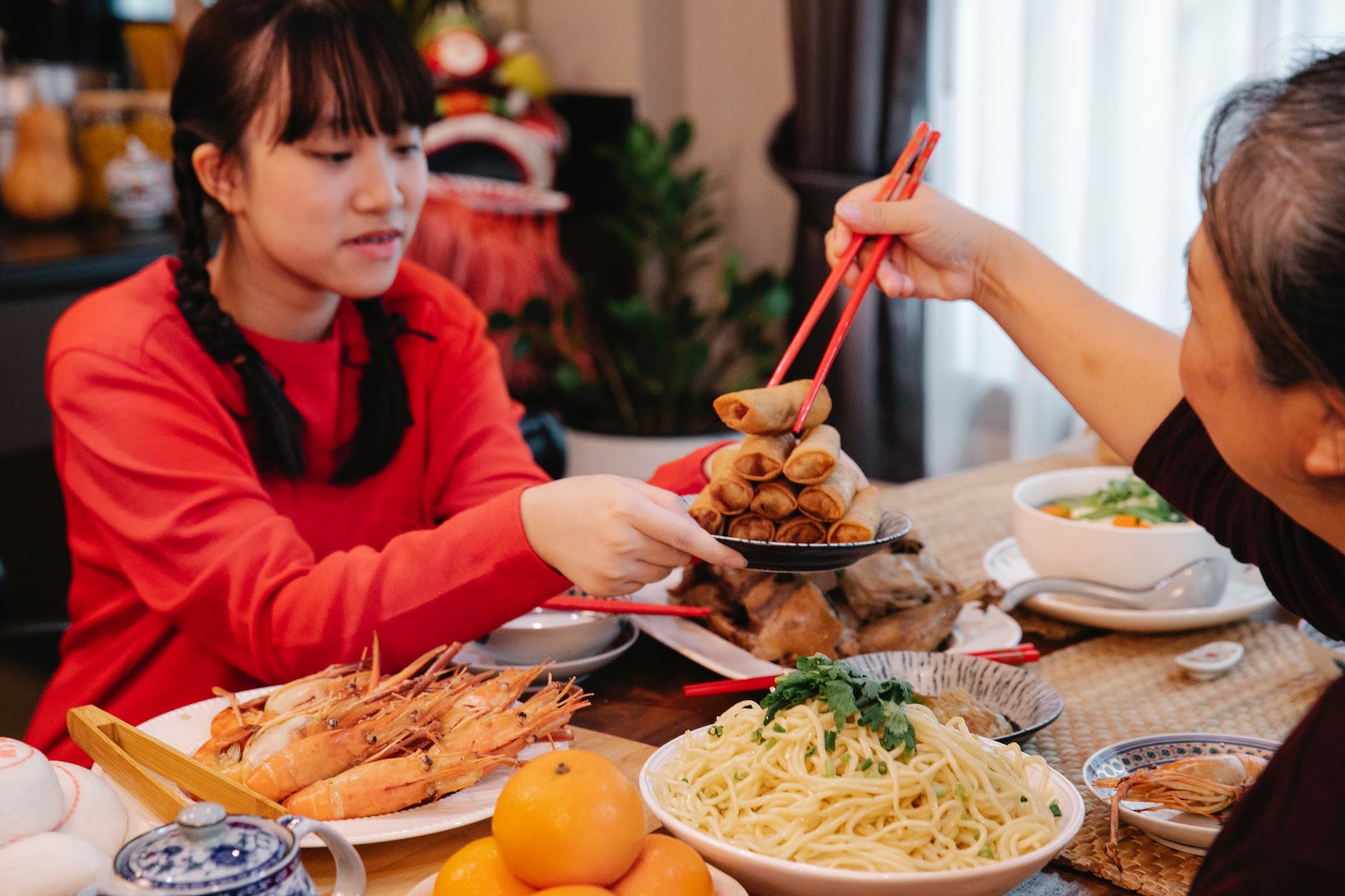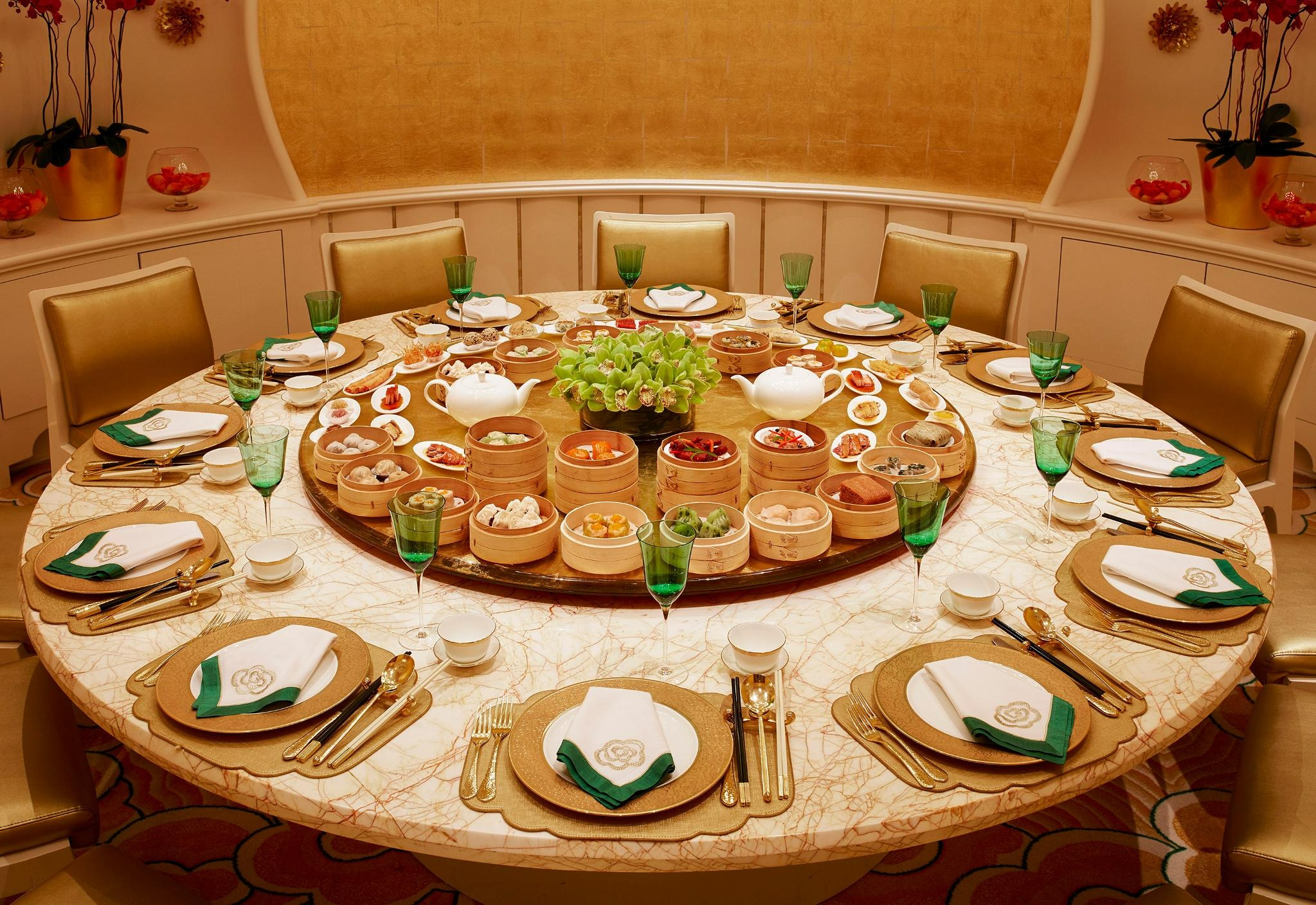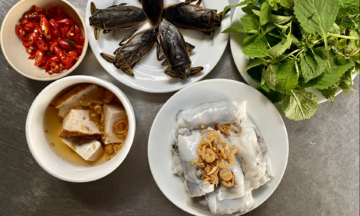In Confucianism, "li" (ritual propriety) is a moral principle emphasizing courtesy and etiquette to build social harmony and moral character. The importance of proper behavior extends to the dining table, as communal meals have long symbolized social bonding in Chinese culture.
While dining customs have evolved with time and cultural shifts, some rules remain unchanged. For many Chinese people worldwide, these customs, ingrained from childhood, have become second nature.
The tea ceremony
In Chinese culture, having an elder or a superior pour tea is an honor. Instead of saying "thank you," the recipient may tap two fingers lightly on the table to express respect.
This custom originated during the Qing dynasty (1644-1912) when the Qianlong Emperor, a tea lover, disguised himself as a commoner and poured tea for a servant. The servant wanted to kneel in gratitude, but doing so would reveal the emperor's identity. Instead, the servant tapped two bent fingers on the table, symbolizing kneeling. Today, this gesture is commonly used when younger people receive tea from elders or superiors.
Order and respect
Order at the Chinese dining table is paramount. The eldest or highest-ranking person initiates the meal, signaling the start by picking up their chopsticks.
 |
A Chinese family meal. Photo: FAB L'Style |
A Chinese family meal. Photo: FAB L'Style
The youngest person might serve rice, while the best dishes, especially delicacies, are offered to elders or superiors first. This person is also the first to leave the table, after which other guests may follow.
Chopstick etiquette
Chopstick etiquette is crucial. Sticking chopsticks upright in a bowl of rice is taboo, resembling incense burning in funeral rites. Chopsticks should rest horizontally on the bowl, plate, or chopstick rest. Pointing chopsticks at others or tapping them on bowls is rude, reminiscent of beggars seeking attention.
Sharing and selecting dishes
Most dishes are shared, requiring mindful actions. After allowing others to serve themselves, choose the nearest pieces, leaving the best for others. Reaching across the table is impolite.
 |
A common Chinese lazy Susan. Photo: Wing Lei |
A common Chinese lazy Susan. Photo: Wing Lei
With a lazy Susan, rotate it slowly, ensuring elders receive dishes first. Never spin it while someone is serving themselves. Offer the last piece to others; asking to take it is acceptable in casual settings.
Dining sounds
Unlike some cultures, slurping soup is generally acceptable. However, avoid talking with your mouth full, eat in small bites, chew with your mouth closed, handle spills discreetly, and don't spit out unwanted bits directly onto the table.
Toothpicks
While toothpicks are common after meals, use them discreetly, covering your mouth with your hand or a napkin. Avoid using fingers as toothpicks.
Paying the bill
Paying for the entire meal is a generous gesture. People often vie to settle the bill after family meals, some even discreetly paying beforehand. This can be a way of displaying financial status or generosity.
Hoai Anh (SCMP)












